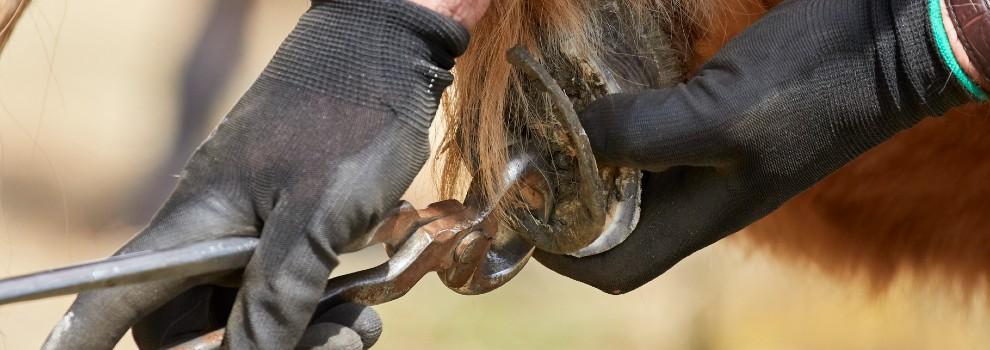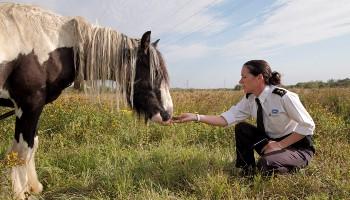Horse Health & Welfare Checks | RSPCA - RSPCA
Regular health checks and prevention
- Check your horse for signs of injury and illness - do this everyday, and make sure someone else does this for you if you're away.
- Regularly deworm and vaccinate your horse against equine influenza and tetanus. You may also want to vaccinate them against equine herpes virus too.
- Poorly fitting tack can cause injury and pain, as can poor riding technique or riding by people too heavy for the horse. Check your horse's tack regularly to make sure it still fits properly, and keep it properly maintained.
Teeth and hooves
- Learn to recognise lameness - if your horse becomes lame, it shouldn't be worked and you should consult your vet.
- Inspect hooves daily, including the underside of the foot. Overgrown or unbalanced hooves can cause severe discomfort and damage to the internal structure of the feet, legs and back.
- Regular farrier checks - your horse should be seen by a farrier registered with the Farriers' Registration Council every four to six weeks, even if they're unshod.
- Regular dental checks - horses' teeth erupt through the gums continuously. They can develop hooks and sharp edges, which can cause painful injuries inside the mouth. Get them checked by an equine vet or qualified equine dental technician at least once a year.
Vet
- Consult a vet if you suspect that your horse is in pain, ill or injured - a change in the way your horse behaves can be an early sign that something's wrong.
- Only use medicines and feed additives recommended for your horse by experts; they can be dangerous if given to the wrong animal. Use and store them according to the instructions.
- Insure your horse to help cover the cost of veterinary treatment.
Before you buy or breed
- Before buying a horse, find out what health and behaviour problems it has or may be prone to. Always check with your vet if you're unsure about anything.
- Before allowing horses to breed, check with your vet and ensure you have a plan in place to care for both parents and foal. Remember, there's currently an overpopulation crisis and we'd encourage you not to breed.
For more tips on keeping your horse happy and healthy, read our Equine Health and Welfare Checklist. You can also find out more about caring for your horse or pony in our guides to their diet, company, behaviour and environment.



